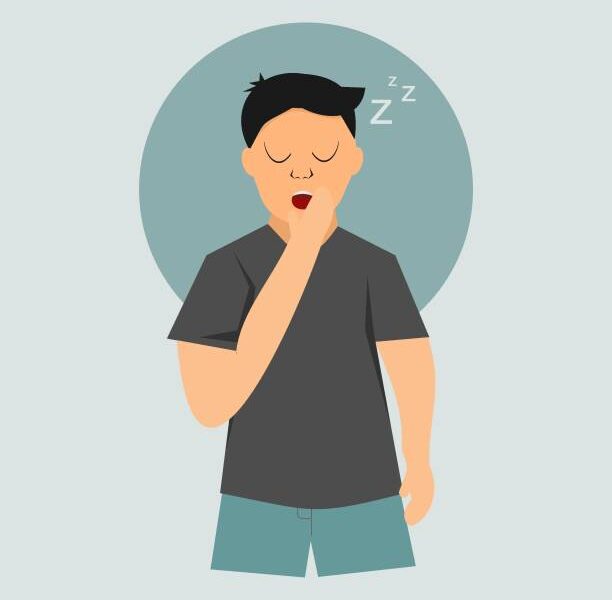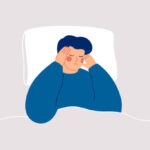Drowsiness, or somnolence, is a common condition that affects many people. It is a state of sleepiness or reduced alertness during the day. Drowsiness may lead to additional symptoms, such as poor concentration, memory lapses, or falling asleep at inappropriate times. Drowsiness can have various causes, such as lack of sleep, medications, medical conditions, or lifestyle factors. Drowsiness can also affect your daily activities, mood, and quality of life.
In this blog post, we’ll explain what drowsiness is, what causes it, what symptoms it may have, and what treatment options are available. We’ll also share some tips and resources to help you prevent and manage drowsiness and the conditions that cause it.
What is drowsiness?
Drowsiness is a term that describes the feeling of being sleepy or tired during the day. It can occur in any part of the day but is more common in the afternoon or evening. Drowsiness can affect your ability to perform tasks that require attention, such as driving, working, studying, or taking care of children.
Drowsiness can be acute or chronic. Acute drowsiness is temporary and usually lasts for a few hours or days. It often results from occasional factors, such as jet lag, shift work, or staying up late. Chronic drowsiness is persistent and lasts for more than three months. It often results from underlying factors, such as sleep disorders, medical conditions, or medications.
Drowsiness can be mild or severe. Mild drowsiness is when you feel slightly sleepy or less alert than usual. It may not interfere with your daily activities, but it may reduce your performance or efficiency. Severe drowsiness is when you feel very sleepy or unable to stay awake during the day. It may interfere with your daily activities and increase your risk of accidents or errors.
What causes drowsiness?
Many factors can cause drowsiness, including:
• Lack of sleep: Lack of sleep is the most common cause of drowsiness. It can result from not getting enough hours of sleep per night, not having a regular sleep schedule, or having poor quality of sleep due to factors such as noise, light, temperature, or discomfort. Lack of sleep can affect your brain function, hormone levels, and immune system, and make you feel tired, irritable, and less alert during the day.
• Medications: Medications are another common cause of drowsiness. Many medications can cause drowsiness as a side effect, either directly by affecting the brain chemicals that regulate sleep and wakefulness, or indirectly by causing other symptoms such as nausea, dizziness, or pain that interfere with sleep. Some examples of medications that can cause drowsiness are:
• Antihistamines: Antihistamines are drugs used to treat allergies and colds. They work by blocking histamine, a chemical that causes inflammation and itching in the body. However, histamine also plays a role in keeping you awake and alert, so antihistamines can make you sleepy.
• Opioids: Opioids are drugs used to treat pain. They work by binding to opioid receptors in the brain and spinal cord, which block pain signals and produce euphoria. However, opioids also affect other brain areas that control breathing, heart rate, and arousal, so opioids can make you sleepy and slow down your vital functions.
• Benzodiazepines: Benzodiazepines are drugs used to treat anxiety and insomnia. They work by enhancing the activity of gamma-aminobutyric acid (GABA), a chemical that inhibits nerve impulses in the brain and induces relaxation. However, benzodiazepines also affect other brain areas that regulate memory, coordination, and alertness, so benzodiazepines can make you sleepy and impair your cognitive function.
• Medical conditions: Medical conditions are another possible cause of drowsiness. Many medical conditions can cause drowsiness by affecting your sleep quantity or by affecting your brain function or metabolism.
Some examples of medical conditions that can cause drowsiness are:
• Sleep apnea: Sleep apnea is a disorder that causes pauses in breathing during sleep due to a blockage in the upper airway.
These pauses might range anywhere from a few seconds to several minutes and occur numerous times every hour. Sleep apnea can disrupt your sleep cycle and reduce the amount of oxygen reaching your brain which can make you feel tired groggy and less alert during the day.
• Narcolepsy: Narcolepsy is a disorder that causes excessive daytime sleepiness due to a dysfunction in the brain’s ability to regulate sleep-wake cycles. Narcolepsy can cause sudden attacks of sleep during any activity as well as other symptoms such as cataplexy (a sudden loss of muscle tone) sleep paralysis (an inability to move or speak while falling asleep or waking up) and hallucinations (vivid sensory experiences while falling asleep or waking up).
• Diabetes: Diabetes is a condition that affects how your body uses glucose (sugar) for energy. Diabetes can cause high blood glucose levels (hyperglycemia) or low blood glucose levels (hypoglycemia) which can affect your brain function and make you feel tired confused or dizzy during the day.
• Hypothyroidism: Hypothyroidism is a condition that occurs when your thyroid gland does not produce enough thyroid hormones which regulate your metabolism and body temperature. Hypothyroidism can cause low metabolism which can make you feel sluggish cold and sleepy during the day.
• Lifestyle factors: Lifestyle factors are another potential cause of drowsiness. Some lifestyle factors that can affect your sleep quality or quantity or your energy level during the day are:
• Diet: Diet can affect your sleep and wakefulness by influencing your blood sugar levels your hormone levels and your digestive system. Eating too much too little or too late at night can disrupt your sleep cycle and make you feel hungry thirsty or uncomfortable during the night or the day. Eating foods that are high in sugar caffeine or alcohol can also affect your sleep quality and make you feel jittery restless or dehydrated during the night or the day.
• Exercise: Exercise can affect your sleep and wakefulness by influencing your body temperature your hormone levels and your mood. Exercising regularly at moderate intensity can improve your sleep quality and make you feel more energetic happy and alert during the day. However exercising too much too little or too close to bedtime can disrupt your sleep cycle and make you feel too hot too cold or too aroused during the night or the day.
• Stress: Stress can affect your sleep and wakefulness by influencing your nervous system your hormone levels and your emotional state. Stress can activate your fight-or-flight response which prepares you for danger by increasing your heart rate blood pressure breathing rate and alertness. However, if stress becomes chronic or overwhelming it can interfere with your relaxation response which helps you calm down by decreasing your heart rate blood pressure breathing rate and alertness. Stress can also cause anxiety depression or anger which can affect your mood and motivation during the day.
What are the symptoms of drowsiness?
The symptoms of drowsiness depend on its cause severity and duration. Some common symptoms of drowsiness are:
• A feeling of sleepiness tiredness or fatigue during the day
• A difficulty staying awake focused or attentive during the day
• A tendency to fall asleep at inappropriate times such as while driving working studying or socializing
• A reduced performance efficiency or productivity at work school or home
• A difficulty remembering learning or making decisions
• A lack of excitement, interest, or motivation
• A mood change such as irritability sadness anxiety or boredom
• A headache, nausea, dizziness, or vision blur
What are the treatment options for drowsiness?
The treatment options for drowsiness depend on its cause severity and impact on your daily life. Some common treatment options for drowsiness are
• Self-care: Self-care measures can help relieve mild to moderate drowsiness caused by occasional factors such as lack of sleep jet lag shift work or stress. Some self-care measures include:
• Getting enough hours of quality sleep per night according to your age and needs
• Having a regular sleep schedule by going to bed and waking up at the same time every day
• Creating a comfortable sleeping environment by keeping it dark quiet cool and free from distractions
• Avoiding caffeine nicotine alcohol heavy meals spicy foods or fluids before bedtime
• Avoiding naps during the day especially in the late afternoon or evening
• Exposing yourself to natural light during the day especially in the morning
• Avoiding bright light artificial light screens or devices at night especially before bedtime
• Practicing relaxation techniques such as meditation, breathing exercises, yoga, or massage to reduce stress and promote sleep
• Engaging in physical activity during the day, preferably in the morning or afternoon, to boost your energy, mood, and metabolism
• Eating a balanced diet that includes foods rich in protein, fiber, vitamins, minerals, and antioxidants to nourish your brain and body
• Drinking plenty of water to stay hydrated and avoid dehydration, which can cause fatigue and headache
• Limiting or avoiding substances that can cause drowsiness, such as alcohol, antihistamines, opioids, benzodiazepines, or sleeping pills
• Taking a short nap during the day, preferably in the early afternoon, to refresh your mind and body
• Medical care: Medical care may be needed for severe, persistent, or recurrent drowsiness caused by an underlying condition or disease. Some medical care options include:
• Seeking emergency care if you have signs of a serious condition such as chest pain, shortness of breath, fainting, confusion, seizures, or loss of consciousness
• Consulting your doctor if you have signs of an infection such as fever, chills, sore throat, cough, or rash
• Consulting your doctor if you have signs of a disease such as diabetes, hypothyroidism, sleep apnea, narcolepsy, or depression
• Getting a diagnosis through physical examination, medical history, blood tests, urine tests, imaging tests, sleep studies, or other tests
• Getting a treatment based on your diagnosis through prescription medications, supplements, injections, devices, surgery, or other therapies Conclusion Drowsiness is a common condition that affects many people. It is a state of sleepiness or reduced alertness during the day. Drowsiness may lead to additional symptoms such as poor concentration, memory lapses, or falling asleep at inappropriate times. Drowsiness can have various causes, such as lack of sleep, medications, medical conditions, or lifestyle factors. Drowsiness can also affect your daily activities, mood, and quality of life. We hope this blog post has helped you understand what drowsiness is and how to overcome it. Remember that drowsiness is not always normal but it may indicate an underlying problem that needs medical attention. If you have any questions or concerns about your drowsiness or health please contact your doctor or a sleep specialist for professional advice.


